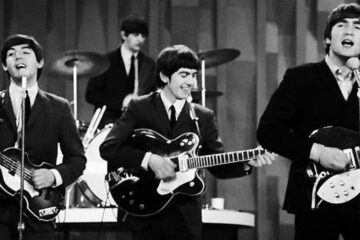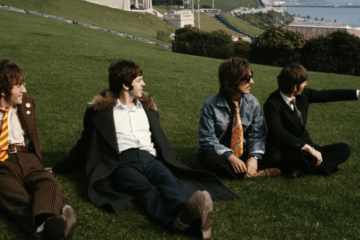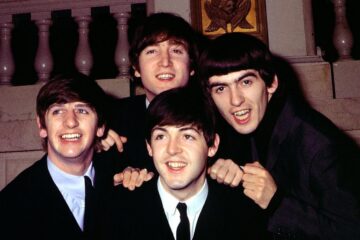Like any musical act that becomes wildly successful, The Beatles had a habit of attracting obsessive fans. At the height of their fame, almost every country in the world had its own brand of Beatles junkie. To this day, countless music fans hold an adoration for the Fab Four that could easily be mistaken for crippling dependence.
While becoming a famous musician brings numerous perks—like performing to packed-out crowds, accumulating incredible wealth, and receiving invites to exclusive events—there are significant drawbacks as well. Chief among them is the loss of privacy, as every aspect of an artist’s life becomes subject to public scrutiny. With The Beatles, this interest was aided by the frequently abstract lyrics of John Lennon, Paul McCartney, and George Harrison, which are fertile ground for misinterpretation and projection. By some fans, every single word The Beatles spoke in interviews was assumed to have some secondary meaning.
Lennon was reminded of one fan’s fixation with his use of language in 1971 when a 23-year-old stranger turned up at his country home to directly ask him what it all meant. This instance was revealed in the 2018 book Imagine John Yoko, penned by Dan Richter, who worked as Lennon and Yoko Ono’s assistant when it occurred. “Apparently Claudio was a shell-shocked veteran who was due to be released from the hospital,” he wrote.
The Beatle claimed he’d been receiving telegrams to his house from the gentlemen for around nine months, always saying the same thing: “I’m coming, and then I’ll only have to look in your eyes, and I’ll know.”
Claudio was determined to learn the true message he assumed lay hidden in Lennon’s lyrics, even if it meant travelling across the sea to find the answer. When he arrived, he was shocked to discover that his hero’s music didn’t necessarily have any purpose at all. In fact, most of it was an attempt to have “fun with words”.
Three years earlier, in 1968, Lennon decided to cause mischief with his song, ‘Glass Onion’. Fed up with people looking for hidden meanings in The Beatles’ music, he set out to write a track deliberately filled with allusions to past works, abstract imagery, red herrings and trap doors. Lennon inserted various references to other over-interpreted songs like ‘Strawberry Fields Forever’, ‘The Fool On The Hill’, Fixing A Hole’, Lady Madonna’ and ‘I Am The Walrus’.
The overall effect is the sonic equivalent of stepping into a mirror maze. ‘Glass Onion sees the protagonist return in ‘Lady Madonna’, a song that itself contains a reference to ‘I Am The Walrus’ in the line “see how they run,” which refers to ‘Lucy In The Sky With Diamonds’ in the line “see how they fly like Lucy in the sky”. It’s like an Escher painting—a true psychedelic masterpiece designed to mock obsessive fans.
At the time, fans likely didn’t realise that Lennon was deliberately toying with them and would have eagerly fallen into his trap, believing he was the mastermind behind a parallel universe. In reality, there was no profound meaning behind these playful references to his past work; it was merely a mischievous, perhaps even sadistic, attempt to mess with the minds of those who adored him most.
During an interview with David Sheff in 1980, Lennon reflected on the lack of meaning in ‘Glass Onion’, noting, “That’s me, just doing a throwaway song, à la ‘Walrus’, à la everything I’ve ever written. I threw the line in – ‘the Walrus was Paul’ – just to confuse everybody a bit more. And I thought Walrus has now become me, meaning ‘I am the one.’ Only it didn’t mean that in this song.”
There’s a certain cruelty in Lennon’s mockery. He was a trickster and a clown, constantly shifting the rules of the game he helped create. Yet, one can’t help but wonder if he realised he was playing with fire. Ultimately, it was a deranged fan, Mark Chapman, who ended up costing him his life, a tragic consequence that adds a haunting layer to his playful provocations.
The murderer, who shot Lennon dead on a mild December evening in New York, misinterpreted lyrics such as the solo song ‘God’ on a deeper level than the songwriter had ever intended. Chapman’s act of deplorable terror remains a frightening tale for any musician, and Lennon’s only offence was the creation of art.




